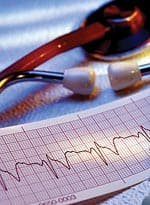The American Stroke Association's International Stroke Conference 2015 held in Nashville February 11-13, 2015 was the site of a presentation of the finding of a greater risk of severe strokes and worsened health during the months that followed among individuals with poor vitamin D status.
Nils Henninger, MD, and his associates evaluated 25-hydroxyvitamin D levels in 96 stroke patients seen between January 2013 and January 2014 at a U.S. hospital. Among those with low vitamin D levels, defined as less than 30 nanograms per milliliter (ng/mL), there was approximately twice the area of dead tissue observed in both lacunar and nonlacunar strokes in comparison with those whose levels were higher. (Lacunar strokes involve small brain arteries, as opposed to nonlacunar strokes that are caused by carotid disease or clots that have migrated from another part of the body.) Dr Henninger and his associates found that for each 10 ng/mL decline in 25-hydroxyvitamin D there was a reduction of nearly 50% in the chance of healthy recovery within the three months following the event.
"Many of the people we consider at high risk for developing stroke have low vitamin D levels," noted Dr Henninger, who is an assistant professor of neurology and psychiatry at University of Massachusetts Medical School in Worcester. "Understanding the link between stroke severity and vitamin D status will help us determine if we should treat vitamin D deficiency in these high-risk patients."
"It's too early to draw firm conclusions from our small study, and patients should discuss the need for vitamin D supplementation with their physician," he added. "However, the results do provide the impetus for further rigorous investigations into the association of vitamin D status and stroke severity. If our findings are replicated, the next logical step may be to test whether supplementation can protect patients at high risk for stroke."







